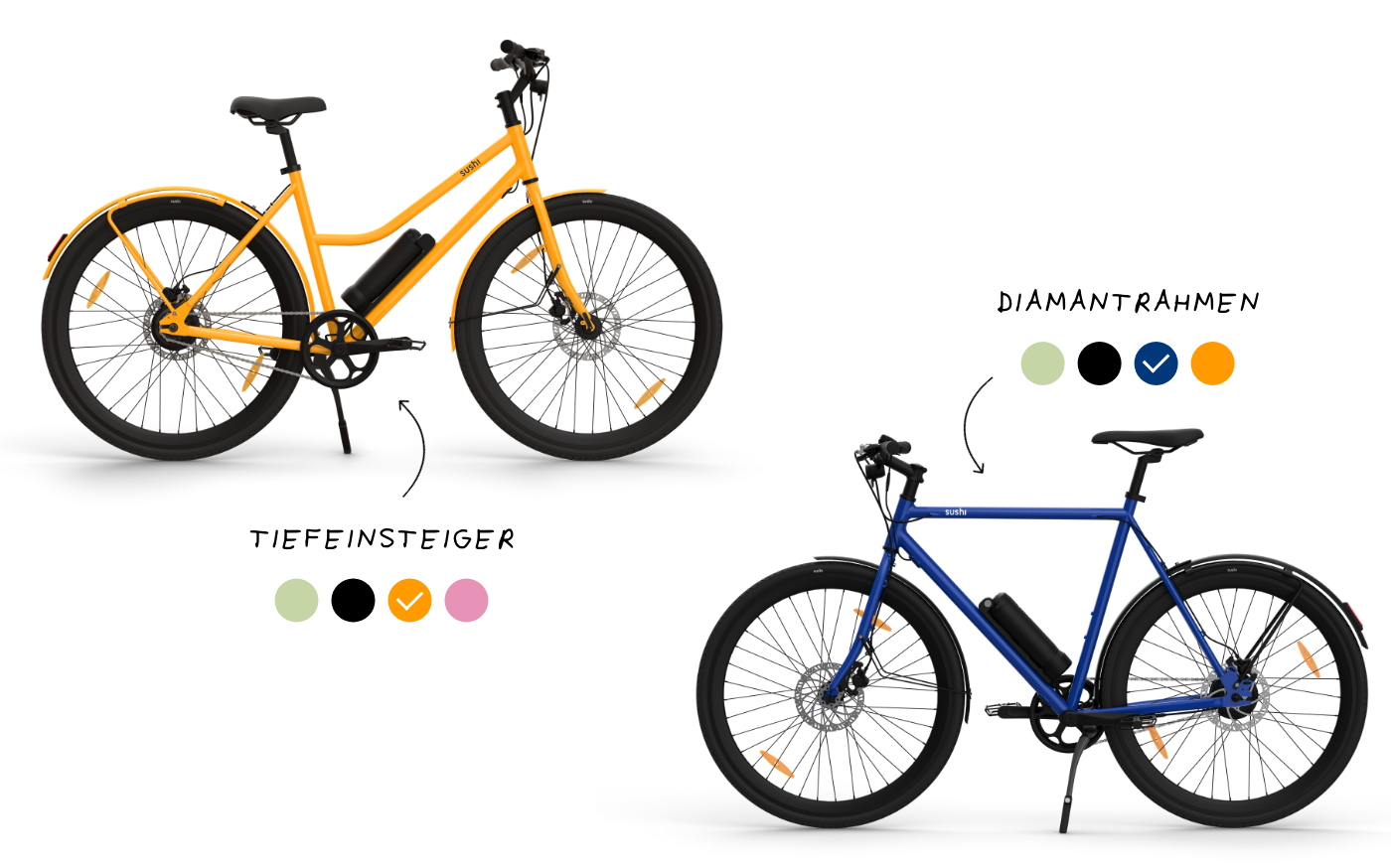With a quiet hum, you glide through the city and feel the wind in your hair. Sounds good, doesn't it? But you can get this driving experience on both an e-bike and an e-scooter. With this blog article, we'll help you find the right vehicle for you.
Whether you prefer the speed of an e-scooter or prefer to travel comfortably on an e-bike, you will find everything you need to know about range, comparison and insurance here. Let's explore the future of urban mobility together and conquer the streets with style and sustainability. Let's roll!
1. Introduction: Why an e-bike or e-scooter?
The choice between these two modern companions depends entirely on your individual needs and your everyday life . Do you want to travel long distances and enjoy the speed of an electric bike, or do you prefer the maneuverability and compactness of an e-scooter for short trips through the city? In any case, both options offer you a unique riding experience .
2. Advantages and disadvantages of an e-bike
E-bikes offer an environmentally friendly and practical way to get around. With electric support, you can reach your destination quickly and comfortably. The advantages are the long range and flexibility in city traffic. Most e-bikes are often more expensive than conventional bikes and require regular maintenance. Our Sushi Bike is actually well below the average price of e-bikes of this type.
Another disadvantage can be that e-bikes are comparatively heavier and bulkier, which can make storage difficult, so the speed is also limited and could be too slow for some. But here too, our SUSHI BIKE has a lot of advantages over other e-bikes. Because our favorite e-bike weighs just 16 kg.
However, if you have to cover longer distances, value sustainability and still don't want to miss out on a bit of exercise, a bike might be a better fit for you than an e-scooter.
3. Advantages and disadvantages of an e-scooter
E-scooters are ideal for short distances in the city. They are compact, lightweight and easy to maneuver, perfect for urban traffic and of course a little more comfortable. The speed is limited, which increases safety, but can also limit the range. A big advantage is the quick availability: just pick one up and go. However, e-scooters are less stable than e-bikes and can be problematic in bad weather. The shorter range compared to e-bikes can also be a disadvantage , especially when longer distances have to be covered. In addition, e-scooters are often less comfortable on uneven roads. So before you decide on an e-scooter, think carefully about the distances you want to cover and whether the advantages of this vehicle meet your needs.
4. Think about which routes you want to cover
Imagine you're planning your daily commute around town. For short trips to work or shopping, an e-scooter would be ideal, as it's light and maneuverable, and easy to take on public transport. However, if you need to travel longer distances or enjoy leisurely rides through parks and bike paths, an e-bike might be a better choice. With its longer range and the option to be active or use the electric motor, it offers you more flexibility and comfort on longer journeys. So consider what kind of routes you mainly want to cover to choose the right vehicle for your needs.
5. Cost comparison: E-bike vs. E-scooter
There are a few things to consider when comparing the costs of an e-bike and an e-scooter. First of all, the purchase costs for an e-bike are usually higher than for an e-scooter. However, the costs may be put into perspective again during ongoing operation. E-bikes require less maintenance and have a longer lifespan than e-scooters, which can save money in the long term. In addition, the electricity costs for charging an e-bike are usually lower than the petrol costs for an e-scooter. Insurance also plays a role: while e-bikes often do not require special insurance, e-scooters require liability insurance in some countries. Overall, it is therefore worth calculating exactly which vehicle is the cheaper option in the long term.
6. Environmental aspects: E-bike or e-scooter?
E-bikes and e-scooters both offer environmentally friendly alternatives to car traffic. But which vehicle is the better choice from an ecological point of view? E-bikes score points with their efficiency, as they often have a longer range per battery charge compared to e-scooters. They are also less resource-intensive to manufacture and dispose of. E-scooters, on the other hand, are lighter and require less material, which improves their environmental footprint. For both vehicles, however, it is crucial how the electricity used is generated. If you rely on renewable energies, your e-bike or e-scooter can be almost emission-free. So pay conscious attention to the origin of your electricity in order to optimize your personal environmental footprint and improve the environmental aspects of your mobility.
7. Conclusion: Which vehicle suits you better - e-bike or e-scooter?
While the e-bike scores with its range and the additional fitness aspect, the e-scooter impresses with its maneuverability and speed. The choice actually depends primarily on your daily routes: are they short trips to work or longer tours in your free time? A cost comparison shows that purchasing an e-bike can be a little more expensive, but scores points in the long run due to lower running costs. In terms of safety, both vehicles offer advantages and disadvantages that need to be taken into account.



